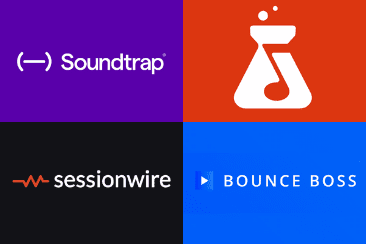Wouldn’t it be just so handy to have a collective of musical terms a-z to refer back to when you don’t know what something means or you need to quickly find out what the essential digital music terms are? We have the best music business glossary right here, so you don’t need to search anywhere else.
We will tell you the difference between PPD music and a demo deal, what a songwriter artist agreement is or what record royalties are, so you have the best music knowledge around. Musical terms a-z are our speciality, so keep reading for more.
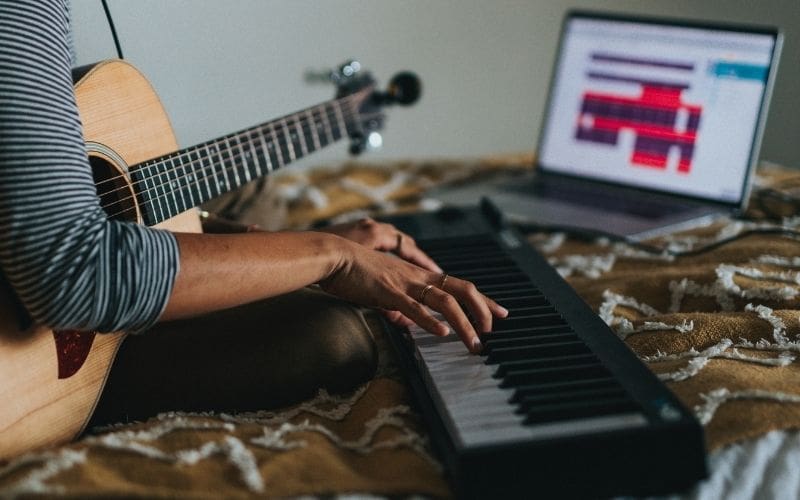
Musical Glossary Of Terms
A&R (Artist and Repertoire) – this department of a record label seeks out new talent and it is their role to convince them to sign with the label. They will be in charge of the negotiation of the deal between the label and the artist, whereby a relationship is formed. They will be the primary contact between the label and the artist.
Advances – this is a portion of the money paid to the artist to record new music once they have been signed. The label will re-collect this money so to speak in the form of royalties made by the artist. Only until the whole advance has been paid will the artist start to make any profit.
Artist Website – this is the website which provides all info about the artist, including new releases, tour dates, album covers, band photos etc.
Blanket Licenses – performing rights organizations (PRO) use just one license to play any song from their music catalog in return for an annual fee, therefore they do not have to seek out a new license every time they play the song. For example, radio stations or shopping halls, and restaurants would use this type of agreement.
Business Manager – this is the person who is in charge of everything related to an artist’s musical career, including finances and additional logistical responsibilities.
Catalog – this is a compilation of music from just one artist, songwriter or group of artists.
Copyright – this is a legal right that creators can claim of their original material, so there cannot be any fraudulent profit made from their music and people will not be able to steal their music. It will offer 6 rights for the artist:
- The right to reproduce the work
- The right to create a derivative work, meaning an adapted work that is directly based on the copyrighted work
- The right to publicly distribute copies of the copyrighted work through sale or for free
- The right to publicly perform the artistic work
- The right to publicly display the artistic work
- For sound recordings: the right to publicly perform the recording through digital audio transmission (not applicable to compositions)
Comps – free tickets to an artist’s concert.
Cover (cover song) – an artist may cover an original song/ record it as their own and they are not the original songwriter.
DAW – A Digital audio workstation is a software or a computer programme you can use for producing, recording, and mixing music. A few of the most well-known DAWs are Ableton Live, ProTools and Logic. We have more articles about these specifically which you should check out.
Delivery – this is when an artist and their record label will decide when best to release their new music. The artist will send the masters to the label.
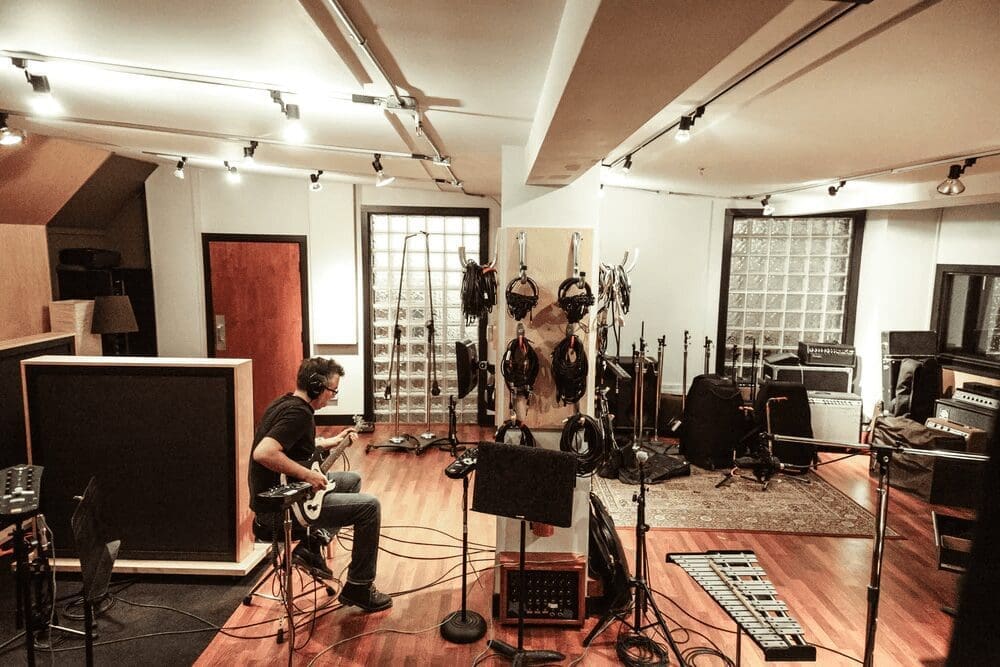
Demo – this showcases the best work of the artists, which they can send on to potential record labels.
Demo deal – therefore this is where an amount of money is given in advance to an artist from a record label for a set amount of demos.
Digital Phonorecord Delivery (DPD) – a digital version of a song that fans can download so they can listen to it indefinitely.
Digital Streaming Platform (DSP) – platforms like Spotify, Apple Music, Tidal, YouTube Music are all examples whereby artists can publish their music online so people can stream them, listen to them whenever they choose.
Door-Split Deal – this is an agreement between the artist and the venue in which they are performing. They do not receive payment for the gig but only in terms of a percentage of the profit made from ticket sales.
EP – if you are asking yourself, what is an ep in the music industry, in musical terms, it stands for extended play. So this is an album which is shorter than an LP but has more tracks than just one single. It usually will consist of 4 or 5 tracks on the album.
EPK – an electronic press kit is something that an artist will create to send on to venues, record labels, agents, and managers as a way to get hired, managed etc. Their music portfolio is what will set them apart from other artists. You will be able to read more about what consists of an EPK in another article I wrote recently.
Freemium – Most streaming platforms have a limited ‘free’-to-use option, usually supported by advertising. This model where users can have limited access in exchange for their time or data, is known as ‘freemium’.
Independent Label – these labels do not receive any funding from any major record labels, therefore they will work with smaller budgets. These may be ideal for emerging artists to begin with at the start of their careers to get some grounding in the industry.
Joint Recording – more than one recording artist will be involved in a production of a song.
Licensee – A licensee is the recipient of rights under an agreement.
Licensor – this is the grantor of rights under the agreement.
LP – this is referred to as a ‘long play’, and it will encompass around 20+ tracks, originally needing two vinyl per release until the 33 1/3rpm 12-inch record was released.
Mastering – you will ensure that the song sounds smooth on all sound systems and that the volume is at the right level before you release it. Thereby consequent copies will be made of the final piece of music.
Merchandise – this is all of the physical products that fans can buy, which are usually t-shirts, hoodies and posters of their favourite artist.
Mixing – mixing is generally going to make the song sound better and in short, it will improve sound quality. As a sound engineer or music producer, this stage of creating music is vital to get right before mastering a track. You will compress the tracks, reduce any unwanted frequencies and balance levels.
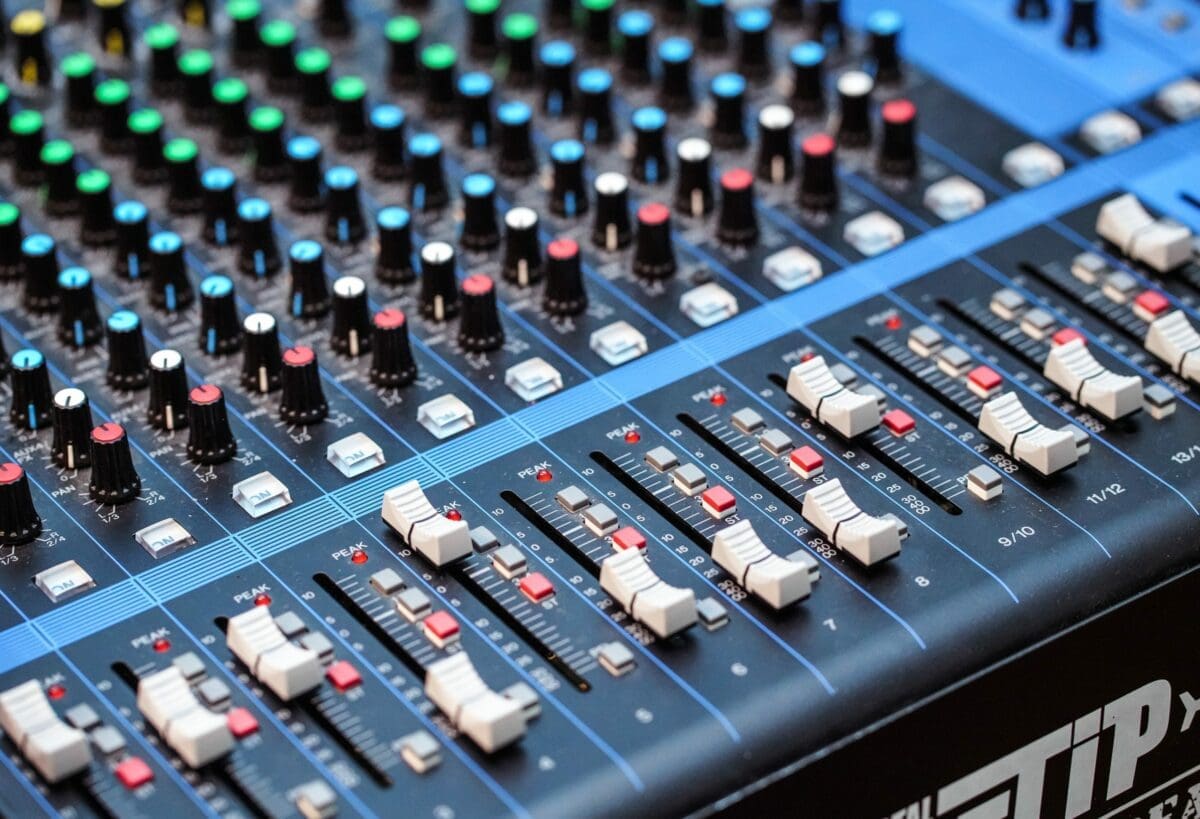
Music Libraries – these acquire the rights to a large catalogue of music whereby production companies can use the songs in the projects.
Musical Monetization – an artist may make money from their music in terms of publishing their music, from YouTube and other DSPs/ social media platforms.
Music Recording Contract Template – this document ensures that the record company and artist are on the same page about essential details before beginning to record. You can employ a music lawyer to make sure you are getting the best deal as the artist.
Performing Right Society (PRS) – PRS for Music is an organisation that acts on behalf of musicians or publishers to licence songs and issue performing rights licences.
PPD Music – this abbreviation refers to the Publisher Price To Dealer, whereby distributors charge their dealers, in terms of EPs, LPs and albums. It can be used as a point of reference regarding royalties.
Promoter – Promoters work alongside publicists and other marketing professionals in order to create promotional opportunities for an artist or project.
Publisher – publishers deal with the copyright when music is distributed. They ensure that the artist is paid correctly when their music is used commercially.
Record Label – a record label’s role is to market recorded music and corresponding videos. They are involved in A&R (see above), music publishing, and copyright enforcement. They will sell the brand of the artist each department works hard to market their artist within the industry.
Record Royalties – this is the money that an artist receives when their music is played in terms of their master recording being downloaded, physically bought, or streamed.
Recoupment – a record label pays for the artist’s expenses until the royalties match this payment. These expenses can include recording, marketing, and then at a later stage the label will take 15-20% of the royalties made by that artist in sales revenue.
Returns – a retailer to which a distributor sells physical copies of an artist’s music to, is within their rights to return these copies to the distributor if no sales were made on them at full credit.
RIAA – In music production terms, RIAA stands for Recording Industry Association of America, a trade association that represents major record labels and distributors in the United States.
Samples – these pre-recorded sound productions under copyright laws can be used in a new music sound production with new copyright owners.
Score – this in music terms refers to the sheet music, the composition of notes on the sheet of music. There are plenty of genres scores are composed for, in terms of television, film, ballet, opera, musicals etc.
Songwriter Artist Agreement – This is a document by which a songwriter assigns the copyright in his compositions to a music publisher in exchange for royalties and, in appropriate cases, an advance against those royalties.
Windowing – Windowing is a sales technique designed to increase the profits made on an album or single’s initial release.
360 Deal – Labels now usually insist on a ‘360 Deal’, in which they receive a percentage of all the artist’s streams of income: merchandising, publishing, touring.
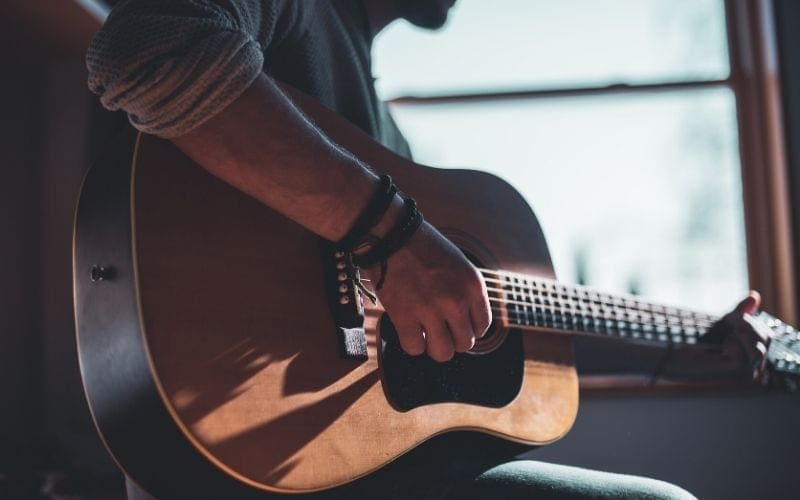
Final Thoughts
I hope that our music industry terms dictionary has been really helpful and you are now a pro if anybody asks you about any musical terms a-z.
It can seem like there can be a lot of musical terms out there, and there are plenty more than just this music glossary, but the more experience you get, the more knowledgeable you will undoubtedly become and these will just be second nature to you.






